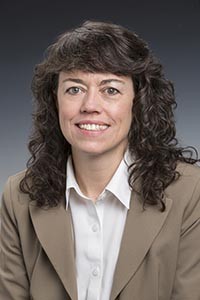Thorough training, paired with a robust array of drills and exercises, will produce the safest prevention and response system
From the Executive Director, Donna Schantz

In most professions, it takes time, training, and on-the job learning to do a job well. A doctor or an electrician may earn a degree, but it can take years to become proficient. They must practice and observe a variety of situations before they are trusted to perform surgery or operate independently with live electrical current.
The oil spill prevention and response profession is no different.
In this next year, Edison Chouest Offshore will be bringing in new tugs and barges custom-built for Prince William Sound, new equipment, and new personnel, all playing key roles in spill prevention and response for the Valdez Marine Terminal and associated oil tankers.
The Council is looking forward to the many improvements in the equipment that will arrive with these vessels. We are anticipating being able to confidently say that every measure has been taken to prevent an oil spill, and if the worst happens, the industry is fully prepared to clean up any spilled oil.
Edison Chouest is planning equipment sea trials as well as classroom and simulator training for personnel in the Gulf of Mexico before equipment arrives in Prince William Sound. We are confident that Edison Chouest will provide professional mariners with required training and qualifications for their specific roles, but they may have limited experience working with the new equipment in the Prince William Sound environment.
Because of the significance and scope of these changes, the Council is recommending a robust process to verify equipment and personnel capabilities and performance in our waters. Such a process, conducted in a controlled and safe manner, would provide assurance that that existing safeguards are not weakened. It could also help identify any adjustments that may be warranted to reliably perform in the expected environmental operating conditions.
Preparedness is invaluable
The best time to prepare for an emergency is before the emergency happens. Tug captains must be experts at performing proven maneuvers in a variety of weather conditions to be able to safely rescue a tanker in a true emergency. Crew members must be confident and proficient, and understand the various challenges they may be faced with while working to connect a towline to a disabled tanker in the bitter cold, blowing snow, and dark of an Alaska winter, in high wind and waves.
Implementation of a robust training regimen, paired with a variety of drills and exercises in varying weather conditions, will help provide the confidence and understanding necessary to handle these situations safely. Crew must be given the opportunity to make mistakes, and learn lessons, when the risk of a pending oil spill is not at stake.
Our mission and motto
The Council’s mission is to promote the environmentally safe operation of the Alyeska terminal and associated tankers. We also have an unofficial motto to trust but verify.
The Council is encouraged by the improvements coming in the way of new technology and equipment, and we trust that the new personnel will be professional mariners trained for their specific job roles. However, a successful oil spill prevention and response system takes more than just equipment, trained personnel, an effective management system, and carefully written plans. It also takes practice, practice, practice, in the expected operating environment.
The Council believes it is environmentally unsafe to move oil in conditions in which it is unsafe to exercise a tanker save. We want to ensure the safety of the personnel entrusted with protecting the environment, in part by allowing solutions to be developed during controlled exercises. Waiting to experience unexpected issues during a real-time emergency is contradictory to safety goals. Working together with industry and regulators, we look forward to continuing to improve the oil spill prevention and response system in Prince William Sound.